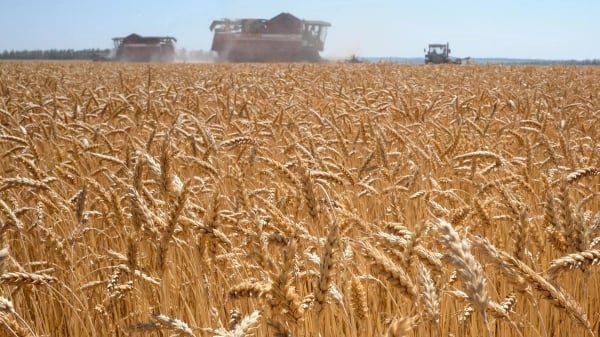War in Ukraine Threatens Global Food Crisis

Global wheat prices hit an all-time high last week. Wheat supplies from Russia and Ukraine, which together account for almost 30% of global wheat trade, are starting to dwindle.
Another major looming problem is access to fertilizers. Global fertilizer company Yara has been affected by record-high natural gas prices, resulting in a 45% cut in production.
Fertilizer output in Europe has plunged because of the surging price of natural gas, a key ingredient in nitrogen-based fertilizers like urea.
Analysts are saying the world is heading toward a food crisis that could affect millions of people. It is universally agreed that it is not whether the world will face a food crisis, but how long it will last.
Fearing shortages, countries are already looking to protect their food stores. Egypt has banned the export of wheat, flour, lentils and beans. Indonesia, the world's top palm oil producer, has tightened export restrictions on the product.
The G7 ministers have called on countries to “keep their food and agricultural markets open and to guard against any unjustified restrictive measures on their exports.”
What does this mean for me?
Global wheat futures prices are at an all-time high. The cost of corn, soybeans, and vegetable oils has been rising, too.
For commodities investors, this is good news for individual portfolios as it offers the chance to take advantage of pronounced market swings. While doing so, we cannot forget the social and humanitarian cost of the conflict in Ukraine.
More News

Copper Prices Head Into Uncharted Territory

Silver’s Surge Shows Rate-Cut Bets and a New Layer of Trade Risk
.webp)
Gold’s Breakout Year Sets a High Bar for 2026
.webp)
Europe’s Gas Chill Turns Into a Price Rout

The Rare Earths Boom Driving a New Global Supercycle
.webp)
Brent Rises as Fresh U.S. Sanctions Choke Russian Oil Exports

Global Wind Market Set to Hit $304 Billion by 2029
.webp)